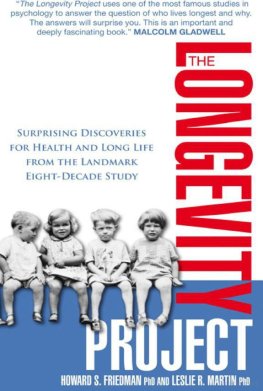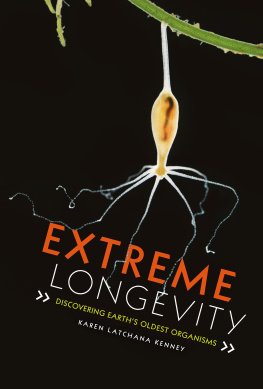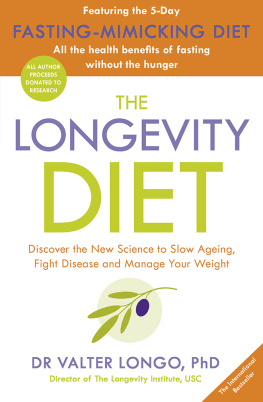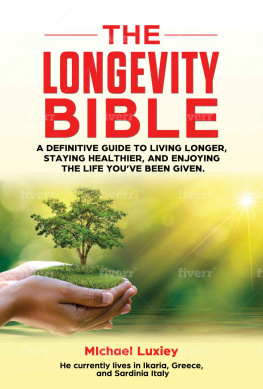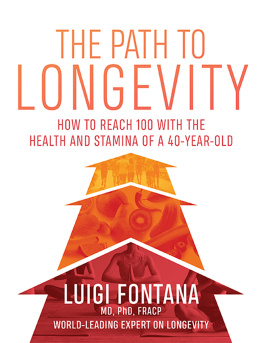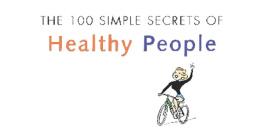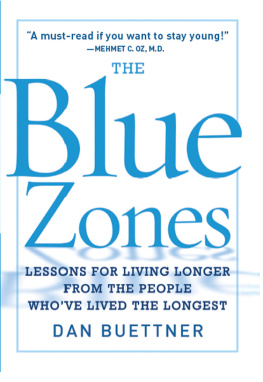Table of Contents
HUDSON STREET PRESS
Published by Penguin Group
Penguin Group (USA) Inc., 375 Hudson Street, New York, New York 10014, U.S.A. Penguin Group (Canada), 90 Eglinton Avenue East, Suite 700, Toronto, Ontario, Canada M4P 2Y3 (a division of Pearson Penguin Canada Inc.) Penguin Books Ltd, 80 Strand, London WC2R oRL, England Penguin Ireland, 25 St Stephens Green, Dublin 2, Ireland (a division of Penguin Books Ltd) Penguin Group (Australia), 250 Camberwell Road, Camberwell, Victoria 3124, Australia (a division of Pearson Australia Group Pty Ltd) Penguin Books India Pvt Ltd, 11 Community Centre, Panchsheel Park, New Delhi110 017, India Penguin Group (NZ), 67 Apollo Drive, Rosedale, North Shore 0632, New Zealand (a division of Pearson New Zealand Ltd) Penguin Books (South Africa) (Pty) Ltd, 24 Sturdee Avenue, Rosebank, Johannesburg 2196, South Africa
Penguin Books Ltd, Registered Offices: 80 Strand, London WC2R 0RL, England
First published by Hudson Street Press, a member of Penguin Group (USA) Inc.
First Printing, March 2011
Copyright Howard S. Friedman and Leslie R. Martin, 2011
All rights reserved
REGISTERED TRADEMARKMARCA REGISTRADA
LIBRARY OF CONGRESS CATALOGING-IN-PUBLICATION DATA
Friedman, Howard S.
p. cm.
Includes index.
ISBN : 978-1-101-51337-8
1. Longevity. I. Martin, Leslie R. II. Title.
RA776.75.F75 2010
613.2dc22
Without limiting the rights under copyright reserved above, no part of this publication may be reproduced, stored in or introducted into a retrieval system, or transmitted, in any form, or by any means (electronic, mechanical, photocopying, recording, or otherwise), without the prior written permission of both the copyright owner and the above publisher of this book.
PUBLISHERS NOTE
Every effort has been made to ensure that the information contained in this book is complete and accurate. However, neither the publisher nor the author is engaged in rendering professional advice or services to the individual reader. The ideas, procedures, and suggestions contained in this book are not intended as a substitute for consulting with your physician. All matters regarding your health require medical supervision. Neither the author nor the publisher shall be liable or responsible for any loss or damage allegedly arising from any information or suggestion in this book
The scanning, uploading and distribution of this book via the Internet or via any other means without the permission of the publisher is illegal and punishable by law. Please purchase only authorized electronic editions, and do not participate in or encourage electronic piracy of copyrighted materials. Your support of the authors rights is appreciated.
BOOKS ARE AVAILABLE AT QUANTITY DISCOUNTS WHEN USED TO PROMOTE PRODUCTS OR SERVICES FOR INFORMATION PLEASE WRITE TO PREMIUM MARKETING DIVISION, PENGUIN GROUP (USA) INC., 375 HUDSON STREET, NEW YORK, NEW YORK 10014.
http://us.penguingroup.com
To Dr. Terman, the Terman participants,
and our many fellow Termanators
INTRODUCTION
The Breakthrough Studies of a Lifetime
In September 1921, a talented young schoolgirl named Patricia and her precocious classmate John were pulled out of their San Francisco classrooms by a Stanford University psychologist, Lewis Terman. Dr. Terman was looking for gifted children and had asked their teachers to pick out the brightest kids in the class. He was interested in the sources of intellectual leadership and wondered if he could identify early glimmers of high potential.
Eighty years later, both Patricia and John were still alive at ninety-one years old. They had beaten the odds and lived very long and healthy lives. What was their secret? In an effort to find out, we have spent the past twenty years following up on the people in Dr. Termans studies and investigating why some people thrive well into old age while others fall ill and die prematurely. Along the way, weve discovered that many common health recommendations are ill-advised or simply wrong. Weve replaced those with more accurate guideposts to a longer, healthier life.
The 1,500 or so bright boys and girls selected by Dr. Terman were born around 1910. Almost all of them are now gone. We have documented when and how they died, and we have studied their lives in meticulous detail. Although many died by their sixties, many others aged in good health and lived well into old age. Surprisingly, the long-lived among them did not find the secret to health in broccoli, medical tests, vitamins, or jogging. Rather, they were individuals with certain constellations of habits and patterns of living. Their personalities, career trajectories, and social lives proved highly relevant to their long-term health, often in ways we did not expect.
The usual piecemeal suggestions given to those who want to improve their health (relax, eat vegetables, lose weight, get married) are lifesaving for some but neither effective nor economical for many. In fact, standard medical advice often backfires, leaving us overweight and overstressed as we struggle to follow specific edicts. Our society spends a fortune on health care, fad diets, pharmaceuticals, and a variety of short-term remedies that help somewhat; but there is often disappointingly little effect on our long-term health and longevity.
The late comedian and actress Lucille Ball had her own secret to staying young: live honestly, eat slowly, and lie about your age. Lucy was both right and wrong. Living honestly, our data show, really can be important, but eating slowly doesnt much matter. Lying about your age and your health does indeed represent a challenge to health researchers, but we have figured out ways to outwit the Lucys of the world and get around this common source of research bias.
In our studies we focus first on longevitylength of life. Many studies of well-being are flawed because they rely too heavily on participants answers to queries about their health and wellnesscalled their self-report. Their self-reported answers are subjective and often inaccurate. Longevity is not distorted by self-report. Although there is a field of study on the reliability of death certificates, it is pretty much the case that if your death certificate says that you died on April 26, 1989, then we can be reasonably certain of your longevity and of your state of health on that date. Lucille Ball was not a participant in Dr. Termans studies, but, as we shall see, one of her closest associates was.
Many common beliefs about health and longevity come from a host of biased sourceswith distortions that go well beyond the self-report biases. Aside from the self-interest research biases we hear so much about (in which someone has a financial stake in the findings), there are also many sources of inadvertent skew or error. If you think about itas we do every day in our laboratoryyou come to realize that we can never be quite sure about the validity of many health studies and claims.
Of course we can study individuals who stay healthy, but to whom do we compare them? If we knew that two people started out exactly the same at birth but one ate only broccoli while the other ate only fried steak, then we might have a reasonable comparison. But almost all epidemiological studies, even those making daily headlines, compare people who differ in many, many ways. Indeed they differ in ways we cannot know about. Most comparisons of vegetarians and cheeseburger addicts, or of pill-takers and the pill-averse, therefore are necessarily somewhat flawed. The researchers generally do their best to be as accurate as possible, but there are always limits in a complex study of human health. And the statistics that emerge from the studies can be interpreted in many different ways.


